Since 2005, the God of War series has been a phenomenon the world over. Its gore, scores, and riveting story entranced both new and longtime gamers alike. And having had four main titles, six prequel/spin-offs and with fans eagerly awaiting the newest game, Ragnorak, God of War and its protagonist Kratos have become a Playstation icon.
So it’s worth looking back at the game that laid the groundwork for what has become a multigenerational beloved hack and slash. On March 13, 2007, Sony released God of War II, and propelled what was merely becoming a saga into an epic legacy.
One may wonder why it’s God of War II being praised and not simply the first game. And to its credit, the original God of War was very much a masterpiece in its own right. The visuals were incredible for its time, the cinematics were dramatic, with swelling musical numbers befitting the Greek tragedy playing out on our screens, and the visceral bloody giblets, consistently shirtless Kratos and lovingly rendered ladies made the game into a well-guarded, highly coveted treasure for both the playground and the office.
But for all its beauty and joy, the Kratos we see in the first God of War isn’t quite the Kratos most of us fell in love with.
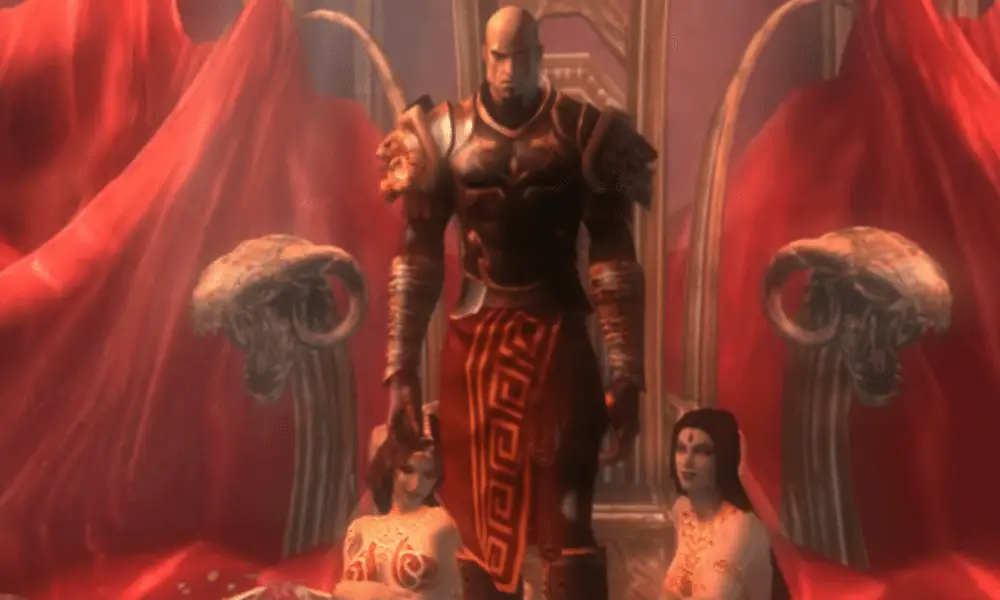
One of the most defining features of some of video gaming’s greatest heroes is that they are broken in such a way that they appear whole. The Master Chief is kidnapped and experimented on as a child. The Doom Slayer/Doomguy is witness to butchery and horrors of an eldritch origin. Lara Croft (the modern iteration) stumbles across her father’s apparent suicide and grows up watching his legacy smeared through the mud.
The Kratos we see at the end of God of War is one who has experienced all these heartbreaks and more, but becomes shackled by becoming the very thing he loathes: a god. The hero isn’t the one with all-encompassing power; it’s the one with power lesser than the enemies they face, and yet renders nearly any advantage their foes wield obsolete through sheer audacious determination and focus and a shattering of mortal limits. But when God of War ends, Kratos’ great determination has been locked away into a position of stagnation.
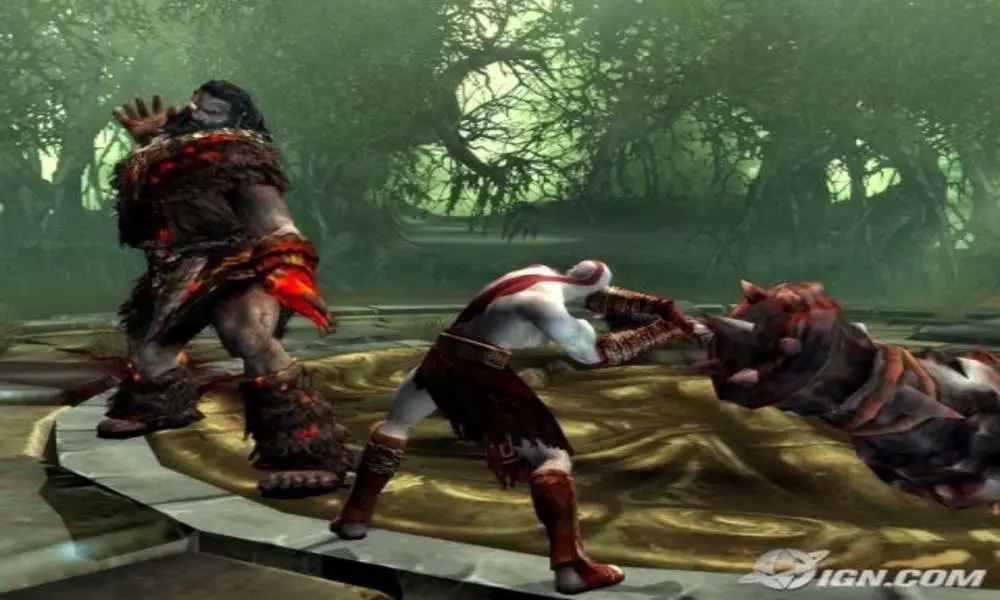
The genius of Kratos’ character arc presented in God of War II is that he lands in the role of “hero” by effectively taunting his “peers” to the point that they strip him of his immortality and their borrowed power, allowing him to retake the reins of his own strength and set to defying them in his own way. It becomes an exposure of the gods’ arrogance and shortsightedness: in attempting to crush the moniker and legacy of the Ghost of Sparta, they only serve to make him stronger.
The Kratos of the sequel is a broken man, yes, but has stepped into the role that straddles man and monster that other such protagonists have done as well. What set him apart from the borderline sociopathic space Spartan, demon slayer, and duel-wielding archeologist mentioned prior is that Kratos possessed a sort of malicious madness and black humor not really seen since the likes of Conker’s Bad Fur Day. Kratos didn’t often smile or laugh, but the nature of actions, in their cleverness and brutality, spoke to the enraged glee that shone through the storm clouds of his grief and anger and loathing.
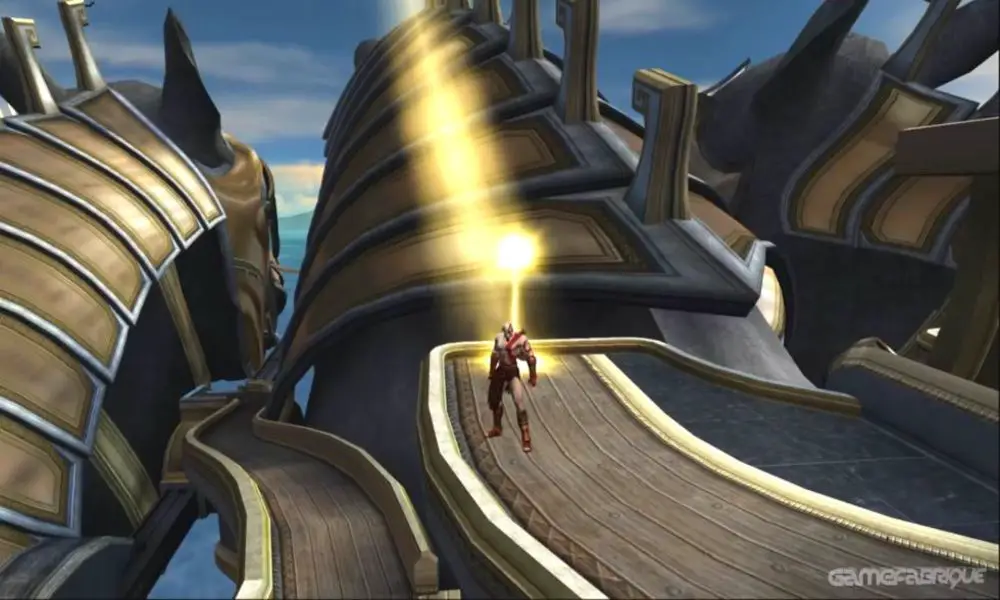
The Kratos we see in God of War II is vital because it bridges the gap between the simmering powder keg we see at the end of the opening game and the raging beast that is only quelled by his own hand at the end of the original trilogy. The righteousness of his decisions builds up throughout the sequel, all the while cleverly developing a dangerous mindset of callousness and single-minded fury that we see carried out in the third game.
The sequel developed Kratos’ skill and feats, turning him from an iron-willed man on the brink to a demigod, the spurned and abused son of Zeus himself, who straddled the worlds of myth and mortal and found belonging in neither. He was a being too powerful for humanity and yet all too human for the stagnant Olympus.
Which leads to another point: Kratos’ inhumanity embodied tragedy in ways that many other protagonists didn’t and couldn’t.
Doomguy didn’t speak, Lara Croft was simply an exceptional scholar with a firearm license, and the Master Chief’s relationship with the AI Cortana was only just starting to get complicated. Each were victors in their stories, yet Kratos, for all his might, could not win for losing.
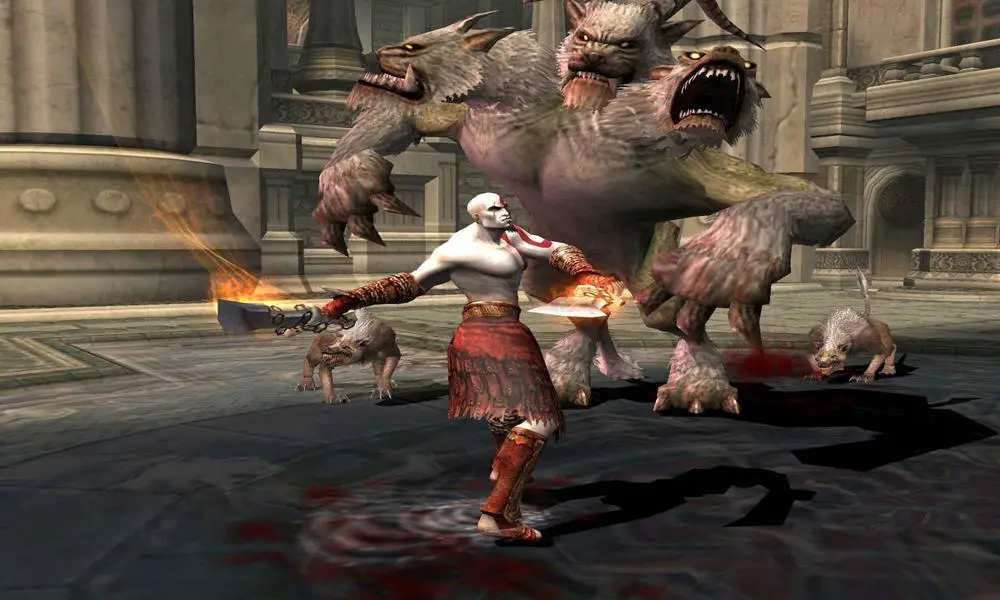
With every slaughter, there was something lost. With every gain, there was something stolen. With every victory, there was a sacrifice. Kratos becomes a god and loses empathy. Kratos gains a powerful weapon and has it brutally ripped away from him. Kratos defeats beings of immeasurable power and millions of his Spartan countrymen are murdered in retaliation. Kratos seizes the reins of his life only to discover it has always been a lie. He is a weapon without a master, and must carve himself into his own wielder.
In order to fully tell his story, the events of God of War II were essential because while the first gathered the materials, it took the second to build the ladder for Kratos to climb into becoming one of the most unconventional “heroes” of all time. In this Greek epic, there were no good guys. There was a legion of uncaring deities and the man who opposed them because he was selfish and empathetic and had nothing left to lose.
On a finishing note, it’s worth mentioning that the gameplay, while not exactly groundbreaking or memorable (except for the infamous ‘square, square, triangle’ combo), featured a shift in the series by giving players some of the grandest boss battles ever. Sure, Kratos started the series by slaying a hydra and ended the first game by murdering Ares. But compared to the battles of the sequel, those were just plain boring.
God of War II starts out with fighting an animated Colossus of Rhodes. You fight the Guardian of the Underworld. You get to slaughter a Gorgon (granted, this one may or may not have been married to Jabba the Hutt). You get to humiliate a crazed Icarus (for those who have only ever played the 2018 God of War, know that Kratos learned how to rip a person’s wings off from somewhere). It’s a progression of battles that highlight not only the protagonist’s rising power but also the difficulty and scale and insurmountable odds Kratos must endure.
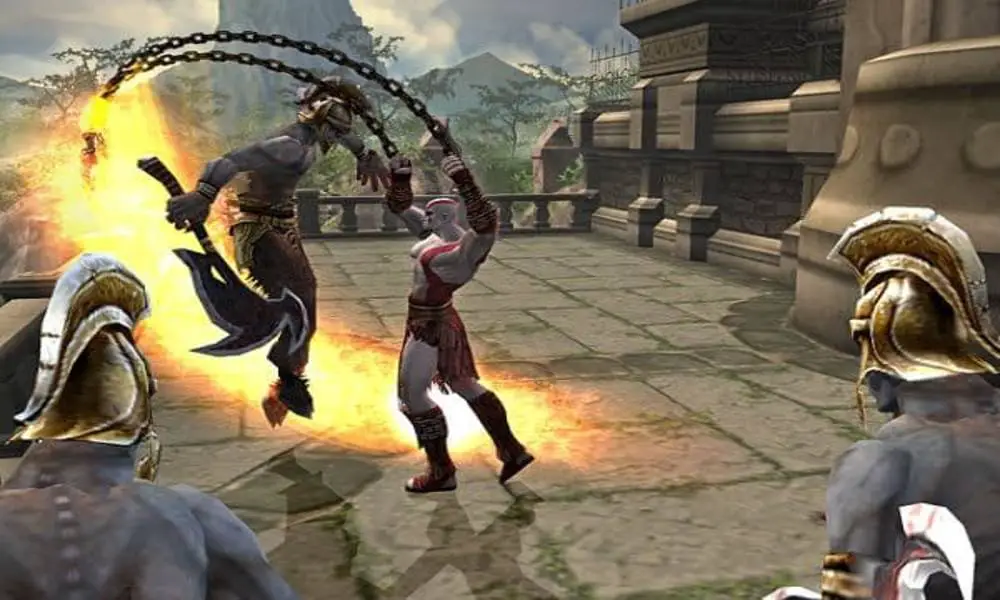
In the end, we must salute God of War II, for without it, it is doubtful we’d be able to appreciate the agonies and triumphs of the Ghost of Sparta turned Dad of Boy today.
Images courtesy of Santa Monica Studio and Sony Computer Entertainment.
Have strong thoughts about this piece you need to share? Or maybe there’s something else on your mind you’re wanting to talk about with fellow Fandomentals? Head on over to our Community server to join in the conversation!

